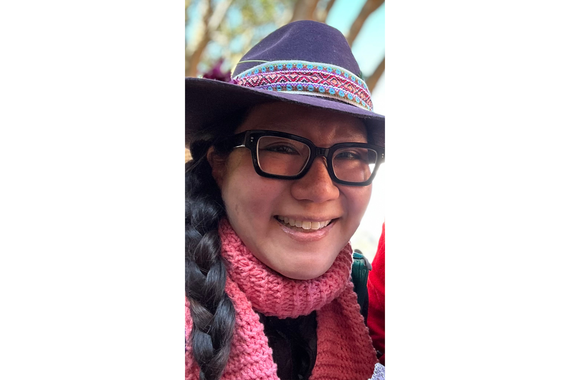Announcing Graduate Admissions for a Comparative and Relational Race Studies Cohort for Fall 2025
In collaboration with our partnering departments, programs, and collectives in the Center for Race, Indigeneity, Disability, Gender, and Sexuality Studies (RIDGS), the Department of American Studies at the University of Minnesota is recruiting a graduate cohort in Comparative and Relational Race Studies for this admissions cycle. Importantly, our general (non-cohort related) admissions remain open, and the Comparative and Relational Race Studies cohort will form part of the students admitted this academic year. Which is to say, any prospective applicant's work (irrespective of interest in Comparative and Relational Race Studies) will need to align with one or more general areas of American Studies focus–like ethnography; textual analysis; oral histories; political economy; transnationalism; regionalism and rurality; Indigenous studies; Black studies; Latinx studies; Asian American studies; Filipinx studies; archipelagic and hemispheric studies; queer studies; gender studies; popular culture–while being mindful of intersections with specific nuances of core and affiliated faculty expertise. And for those applicants interested in the Comparative and Relational Race Studies cohort, we encourage them to indicate and outline in the statement of purpose how their research agenda in Comparative and Relational Race Studies aligns with American Studies at the University of Minnesota. Additionally, we are interested in Comparative and Relational Race Studies applicants who not only following Natalia Molina, Daniel Martinez HoSang, and Ramón Gutierrez (2019)— “conceptualize racialization as a dynamic and interactive process” whereby “group-based racial constructions are formed in relation not only to whiteness but also to other devalued and marginalized groups,” but who also—following Grace Kyungwon Hong and Roderick A. Ferguson (2011)— “articulate how racialized, gendered, and sexualized difference has been produced and understood through comparison” and who seek to “produce new analytics through which to apprehend coalitional possibilities.” In so doing, we seek applicants who consider Comparative and Relational Race Studies as an intellectually and politically urgent mode of inquiry and form of engagement that draws on, bridges, and renders anew an array of fields and disciplines like (but not limited to):
-
Indigenous studies
-
Settler colonialism
-
Black studies
-
Chicanx & Latinx studies
-
Asian American studies
-
Arab American studies
-
Pacific island studies
-
Caribbean studies
-
Critical refugee studies
-
Critical ethnic studies
-
Queer of color and queer diasporic critique
-
Trans* studies and trans of color critique
-
Women of color and transnational feminisms
-
Critical disability studies and crip of color critique
-
Critical geographies and ecologies
-
Critical education studies
-
Transnational and transracial adoption
-
Abolition and carcerality
-
Abolitionist/Critical university studies
-
Neoliberalism
-
(Im)migration
-
Empire, war, militarism, and occupation
-
Slavery and its afterlives


